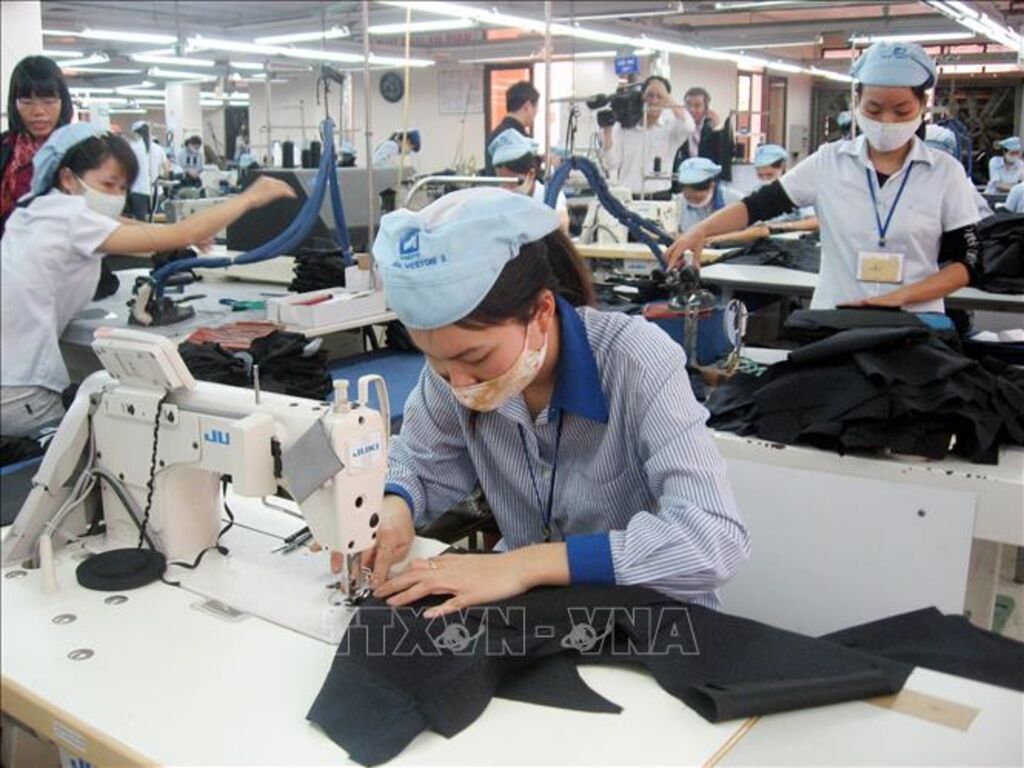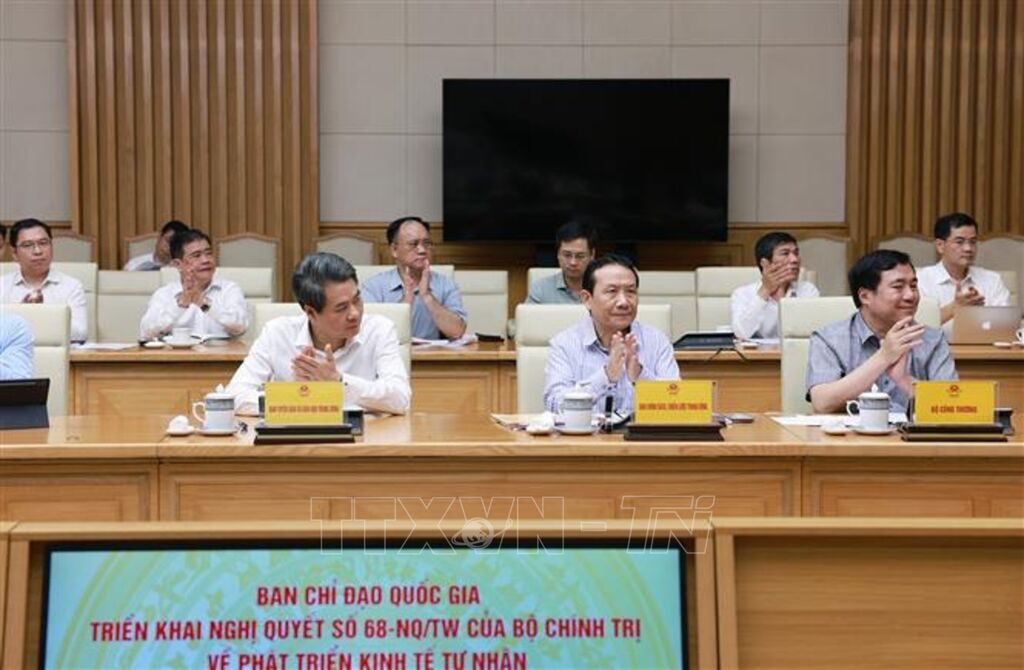 |
| Production of textiles and garments for export to Europe__Photo: Do Phuong Anh/VNA |
Prime Minister Pham Minh Chinh on August 4 laid out 15 groups of concrete tasks and solutions to realize the Politburo’s Resolution 68-NQ/TW on private economic development.
Key measures include resolving institutional bottlenecks, reviewing and amending legal documents relating to taxes, fees, land access, natural resources, interest rate support, human resource training, administrative penalties in the fields of competition, science and technology, and digital transformation. The aim is to transform institutional frameworks into competitive advantages.
The PM presented these priorities while chairing the first meeting of the national steering committee for implementing the Politburo’s Resolution 68-NQ/TW on private economic development, which he heads.
The leader tasked the Government Office with drawing up a roadmap to streamline administrative procedures, reducing both the time and cost involved. Greater decentralization and delegation of authority to local governments in handling administrative matters was also instructed.
Localities, meanwhile, were urged to improve and finalize their development planning, promote new investment projects, and ensure that investor access remains equal, transparent, and open.
The PM also further directed the 18 out of 34 provinces and cities that have yet to formulate action plans for implementing Resolution 68 to do so without delay.
 |
| At the first meeting of the national steering committee for implementing the Politburo’s Resolution 68-NQ/TW on August 4__Photo: VNA |
On May 4, the Politburo issued Resolution 68-NQ/TW. To implement it, the National Assembly (NA) adopted Resolution 198/2025/QH15 outlining special mechanisms and policies to support growth of the private economic sector, followed by the Government’s Resolution 139/NQ-CP detailing the implementation plan of the NA’s document.
Under the Government’s Resolution 138/NQ-CP on its action plan for executing Resolution 68, a total of 56 tasks have been laid out, while Resolution 139 has assigned 26 additional tasks. Eleven ministries and agencies have been designated as leads, with 17 tasks scheduled for completion in 2025. To date, only six have been completed so the remaining 11 must be fulfilled by the end of the year.
After three months of implementing the Resolution, the private economic sector has seen many positive changes. According to the steering committee, June saw the establishment of over 24,000 new businesses, while July added more than 16,000. This brought the total number of newly established enterprises in the first seven months of 2025 to nearly 108,000. Operating businesses also reported additional capital of over VND 2.4 quadrillion (USD 91.62 billion), a year-on-year increase of more than 186 percent.
During the seven-month period, over 536,000 new business households were registered, up 165 percent annually, and over 66,300 enterprises resumed operations, a nearly 50 percent increase compared to the same period in 2024.
State budget revenue from the non-state industry-trade and services sector in the first half reached nearly VND 260 trillion, up 25 percent year-on-year.- (VNA/VLLF)









